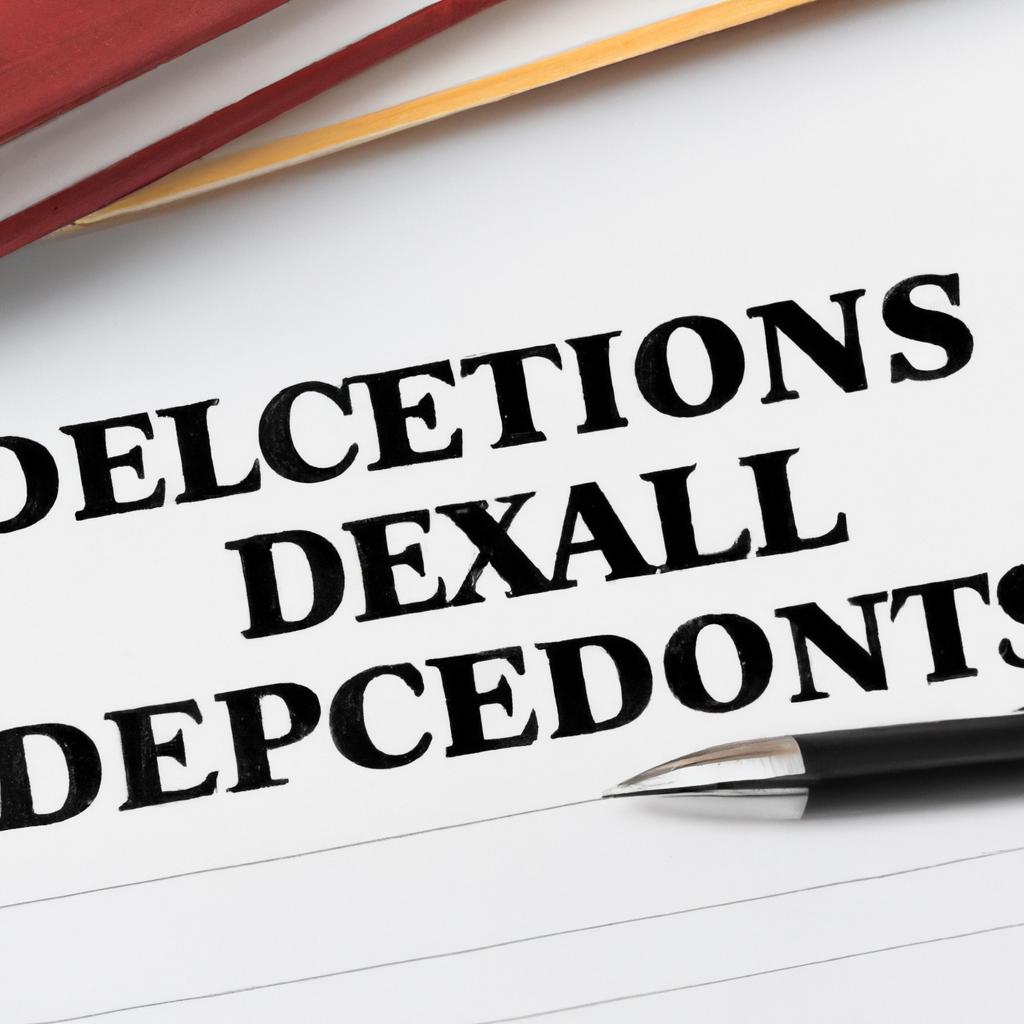In the intricate tapestry of property law, deeds to land serve as the foundational threads that bind ownership rights to tangible parcels of real estate. With a legacy of precision and expertise, the Morgan Legal Group of New York City navigates the complexities of deeds with a seasoned hand, guiding clients through the nuances of estate planning, probate, elder law, Wills, and trusts. Join us as we unravel the intricacies of deeds to land, laying the groundwork for secure and prosperous property ownership.
Understanding the Importance of Deeds in Real Estate Transactions
When it comes to real estate transactions, deeds play a crucial role in establishing ownership rights and transferring property from one party to another. A deed is a legal document that proves ownership of a property and outlines the rights and responsibilities of the parties involved. is essential for ensuring the smooth transfer of property and protecting the interests of all parties.
There are several types of deeds used in real estate transactions, each serving a specific purpose. Some common types of deeds include:
- General Warranty Deed: This type of deed provides the highest level of protection for the buyer, as it guarantees that the seller has clear title to the property and can legally transfer ownership.
- Quitclaim Deed: A quitclaim deed transfers whatever interest the seller may have in the property, but does not guarantee that the seller actually owns the property.
- Special Warranty Deed: This deed guarantees that the seller has not done anything to harm the title of the property during their ownership, but does not provide as much protection as a general warranty deed.

Key Considerations When Drafting Deeds for Real Property
When drafting deeds for real property, there are several key considerations that must be taken into account to ensure a smooth and legally binding transaction. One of the most important factors to consider is the type of deed that will be used to transfer ownership of the property. There are several different types of deeds, each with its own unique requirements and implications.
Another important consideration when drafting deeds for real property is the accurate description of the property being transferred. This includes not only the physical address of the property but also a detailed legal description that can be easily identified and verified. In addition, it is crucial to include all necessary parties in the deed, including the grantor (the person transferring the property) and the grantee (the person receiving the property).

Ensuring Proper Execution and Recording of Deeds in New York City
When it comes to the transfer of real property in New York City, proper execution and recording of deeds are crucial to ensure a smooth and legally binding transaction. A deed is a legal document that transfers ownership of real property from one party to another. It is essential that deeds are executed and recorded accurately to avoid any potential disputes or challenges in the future.
One important step in ensuring the proper execution of a deed is to make sure that all parties involved sign the document in the presence of a notary public. This helps to verify the identity of the parties and ensures that the signatures are authentic. Additionally, it is important to accurately describe the property being transferred in the deed to avoid any confusion or disputes over boundaries or other details. By taking these steps and properly recording the deed with the appropriate county clerk’s office in New York City, you can help protect your rights as a property owner and ensure a seamless transfer of ownership.

Recommendations for Resolving Common Issues with Deeds in Land Transactions
When dealing with deeds in land transactions, it is crucial to address common issues that may arise to ensure a smooth and successful transfer of ownership. One common issue is incorrect legal descriptions, which can lead to disputes and legal challenges. To prevent this, always double-check the legal description in the deed against the official property records before finalizing any transaction.
Another frequent issue is missing signatures or notarization, which can render the deed invalid. To avoid this, make sure all parties required to sign the deed do so in the presence of a notary public. Additionally, it is recommended to keep thorough documentation of the transaction, including all correspondence, contracts, and financial records.
Q&A
Q: What are deeds to land?
A: Deeds to land are legal documents that establish ownership of a property.
Q: Why are deeds to land important?
A: Deeds to land are important because they provide proof of ownership and help protect property rights.
Q: How do you obtain a deed to land?
A: Deeds to land are typically created and recorded by a lawyer or title company during a real estate transaction.
Q: What information is included in a deed to land?
A: A deed to land typically includes the names of the current and previous owners, a legal description of the property, and details about any restrictions or easements.
Q: Are there different types of deeds to land?
A: Yes, there are different types of deeds to land, including warranty deeds, quitclaim deeds, and special warranty deeds.
Q: Can deeds to land be transferred or sold?
A: Yes, deeds to land can be transferred or sold, but the new owner must follow the proper legal procedures to have the deed recorded with the appropriate government office.
The Conclusion
In conclusion, deeds to land serve as the cornerstone of property ownership, providing legal documentation of the rights and responsibilities associated with a piece of land. These deeds not only establish ownership, but also delineate boundaries and serve as a record of past transactions. Whether passed down through generations or bought and sold on the market, deeds to land are a vital component of our modern society. So next time you walk through a lush green field or admire a towering skyscraper, remember that behind every plot of land lies a deed, silently holding the key to its history and future.












